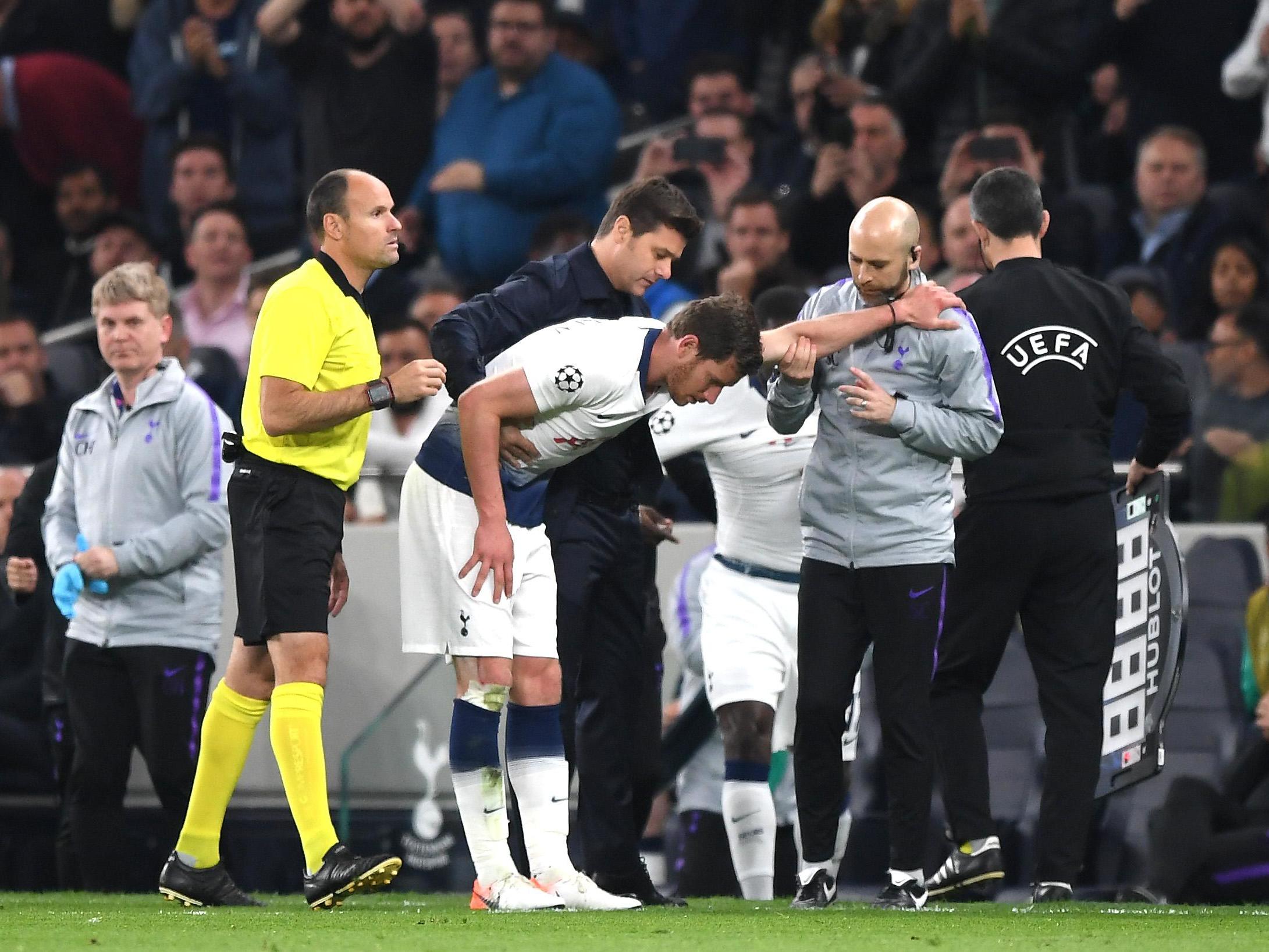Leading concussion expert advises introduction of 10-minute ‘evaluation substitutions’
The discussions may lead to a change in ruling by the International Football Association Board

Your support helps us to tell the story
From reproductive rights to climate change to Big Tech, The Independent is on the ground when the story is developing. Whether it's investigating the financials of Elon Musk's pro-Trump PAC or producing our latest documentary, 'The A Word', which shines a light on the American women fighting for reproductive rights, we know how important it is to parse out the facts from the messaging.
At such a critical moment in US history, we need reporters on the ground. Your donation allows us to keep sending journalists to speak to both sides of the story.
The Independent is trusted by Americans across the entire political spectrum. And unlike many other quality news outlets, we choose not to lock Americans out of our reporting and analysis with paywalls. We believe quality journalism should be available to everyone, paid for by those who can afford it.
Your support makes all the difference.The introduction of a 10-minute evaluation period is the “optimal” way to deal with suspected concussion in football, according to the man who presented to the game’s law-making advisory panels last week.
Professor Jon Patricios, the director of Sports Concussion South Africa, addressed the football and technical advisory panels of the International Football Association Board (IFAB) in Zurich on October 23.
The IFAB released a statement following the meeting that an expert panel would be assembled to look at the issue in greater depth, which Patricios has been asked to join.
The discussions may ultimately lead to the worldwide introduction of a 10-minute, off-field evaluation of any player suspected to have suffered concussion, with a ‘concussion substitute’ replacing that player either temporarily or permanently.
Patricios said the 10-minute evaluation struck the right balance at the elite level between player welfare and sporting considerations.
“The conclusion in my presentation was that in several consensus meetings throughout the world a 10-minute period is felt to be optimal for evaluating the player, and that the evaluation should take place off the field,” he told the PA news agency.
“My view is that no system is perfect – a concussion could evolve over two days and you could miss it in a half-hour evaluation, but you have got to very carefully balance the priority of player welfare with disruption to the game and the fabric of the game, and the potential manipulation of those rules.
“So it’s a balancing act, but we feel that having gone through an evaluation in reasonably experienced hands, 10 minutes is a fair amount of time to give a clinician to make a decision.”
Patricios said that in rugby, studies had shown that the number of concussions which were missed during a match had fallen to 12 per cent from 56 per cent after the introduction of the 10-minute evaluation period.
The issue of concussion in the game was brought into greater focus following the release of the FIELD study from the University of Glasgow last week, which showed that footballers were three and a half times more likely to die of degenerative brain disease than the general population.
The next phase of that study will look more deeply into why that increased likelihood exists, but already some, including former footballer and motor neurone disease sufferer Lenny Johnrose, have called for any player suffering a head injury to be immediately and permanently substituted.

Patricios does not feel that approach would get “buy-in” at the professional level.
“The difficulty arises because of the high stakes of professional sport and you have to acknowledge that,” he added.
“The problem with making a decision like that is you’re going to start losing the co-operation of players, coaches and medical staff because they are just going to say ‘listen, if anyone with a slight knock gets pulled off the field I’m not going to risk using my main striker for 60,70, 80 minutes in a game, forget about it, we’re going to soldier on’.
“If we have a situation where we balance an effective medical evaluation with the potential for a player to return if it’s not a concussion, then you have greater buy-in. The second point is there are a myriad of conditions which might mimic concussion. You can’t just start pulling players off with any one of those issues on the spectrum of symptoms.”
He also felt that introducing a worldwide heading ban in youth football could not be introduced unless or until there was “robust” evidence of a link between heading and brain injury.
Heading the ball is currently banned in the United States for under-11s.
PA
Join our commenting forum
Join thought-provoking conversations, follow other Independent readers and see their replies
Comments